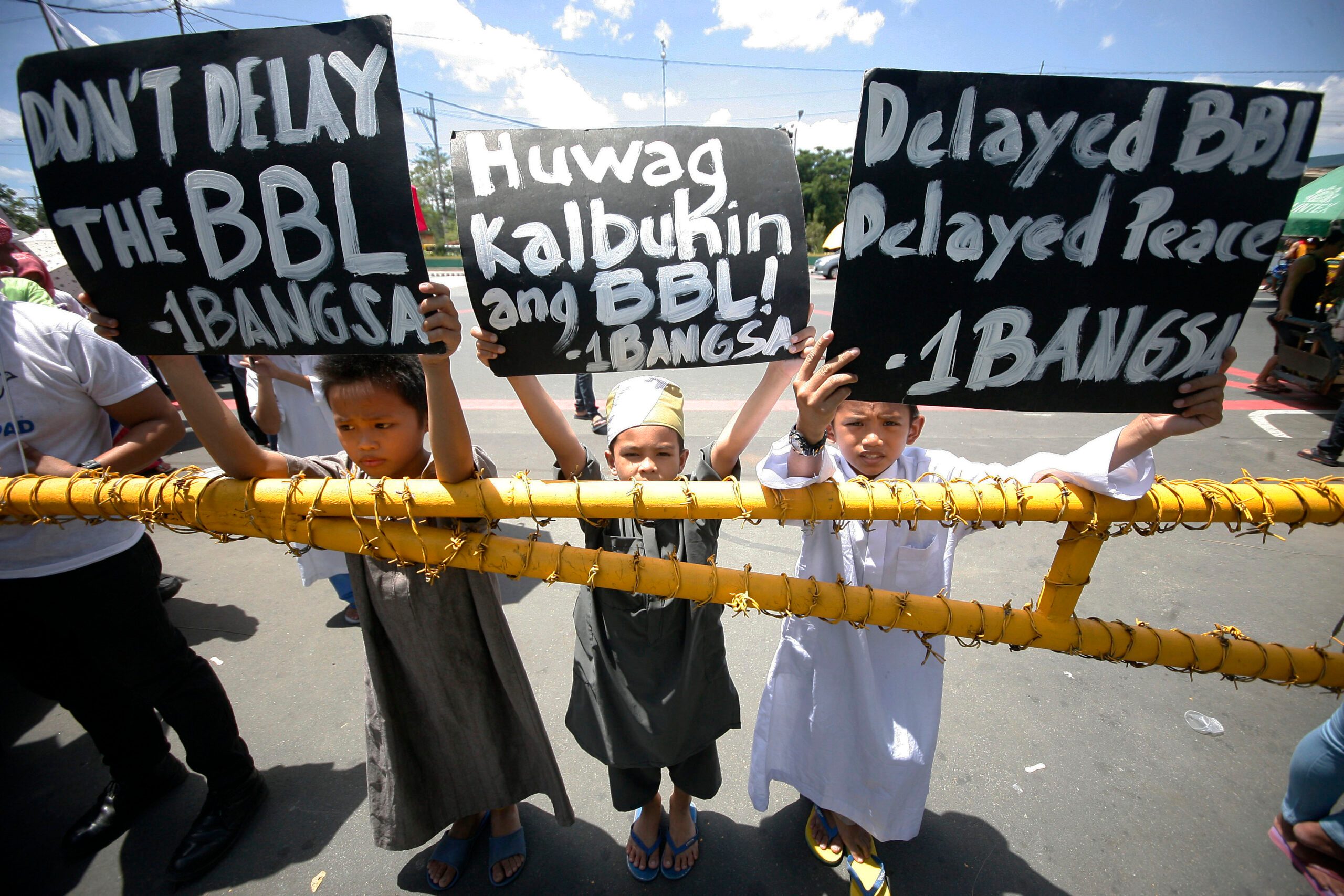SUMMARY
This is AI generated summarization, which may have errors. For context, always refer to the full article.

MANILA, Philippines – The Senate may manage to pass the proposed Bangsamoro basic law (BBL) by August or September instead of the October deadline earlier eyed by Senate President Franklin Drilon.
Drilon told ANC on Monday, June 8, that August or September would be a “practical timetable” for the BBL as Senator Ferdinand Marcos Jr is set to file a substitute bill when Congress resumes session in the last week of July for President Benigno Aquino III’s final State of the Nation Address. The last day of the 2nd regular session is Thursday, June 11.
“In a months’ time, I think it’s reasonable – August or September. That is not a deadline,” Drilon said.
Congress leaders had agreed to pass by the bill by June but the Mamamasapano clash, which killed 67 Filipinos, pushed back the deadline. After a visit in Sulu and Zamboanga, Marcos decided to hold more committee hearings at the Senate.
Meeting the October deadline is crucial since it will mark the filing of the certificates of candidacies for the 2016 elections.
Drilon said he is exploring the possibility of moving the filing of COCs.
“The filing of certificates of candidacy is in October, but the deadline in October is because of the automation. This is a rule imposed as a deadline by the (Commission on Elections), not by law, because they need enough time to prepare. So we have to consult the Comelec as to when they can really move the time of the filing of certificates of candidacy,” Drilon said.
The proposed Bangsamoro basic law seeks to entrench a parliamentary form of autonomous regional government, which would make available different kinds of positions from the current Autonomous Region in Muslim Mindanao (ARMM) for the 2016 national elections.
With the October deadline to pass the law, the transition body – to be led by the Moro Islamic Liberation Front as the other party to the peace deal – only has a few months to lead the shift from the ARMM to the Bangsamoro. (READ: 4 scenarios if the Bangsamoro bill is not passed)
Some senators who are critical of the BBL, such as Senator Francis Escudero, have said they would not adhere to the timetable set by Drilon.
Controversial provisions
When the Senate discusses the Bangsamoro bill on the floor, Drilon said some of the contentious issues that are expected to be scrutinized are the proposed block grant, the matter on creating autonomous branches of constitutional bodies in the region, and the chain of command of the Philippine National Police and the Bangsamoro Police.
These issues were also some of the most controversial positions discussed in the House.
Drilon said he is not in favor of the “opt-in” provision. Under the bill, contiguous areas or local government units sharing a common border with the Bangsamoro region may opt to join the plebiscite for possible inclusion with a petition of 10% of voters at any time. Filing the petition does not mean that the LGU would automatically be included in the Bangsamoro. That would still be determined in a plebiscite.
“I am not in favor of that. I will see to it, and I will not agree that the opt-in provision should be there, because that fans the mistrust between our brother Muslims and Christians in the South. We have to overcome that, and in today’s environment, it is certainly not conducive to having provisions like the opt-in provision which was in the Tripoli Agreement,” Drilon said.
In the House of Representatives, the ad hoc committee had agreed to delete the provision but it was reinstated in the draft that was circulated after a meeting with President Benigno Aquino III in Malacañang.
The ad hoc committee draft, however, imposed limitations. The plebiscite to join the Bangsamoro may only be held 5 years and 10 years after the creation of the region and only areas within the 13 provinces mentioned in the Tripoli Agreement of 1976, which share a common land border with the Bangsamoro, may join.
If there is a clamor to join the Bangsamoro in the future, Drilon said Congress can always amend the law.
“To place it there and have an opt-in provision at this stage where we are trying to get it across the higher and bigger concept of autonomous region, to place the opt-in provision at this point will just add fire to where it is not necessary,” Drilon said.
In the House, the Bangsamoro bill, renamed Basic Law of the Bangsamoro Autonomous Region, is now subject to debates on the floor. A total of 31 lawmakers signed up for interpollation. About 10 have so far asked questions.
Speaker Feliciano Belmonte Jr earlier said the House is still working on the June 11 deadline to pass the law. – Rappler.com
Add a comment
How does this make you feel?
There are no comments yet. Add your comment to start the conversation.